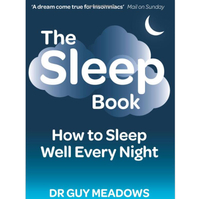Will the 10-3-2-1-0 sleep rule finally help you slumber soundly? I tried it, and it works
This rule for a great night's sleep changed my night-time routine – and could help you, too
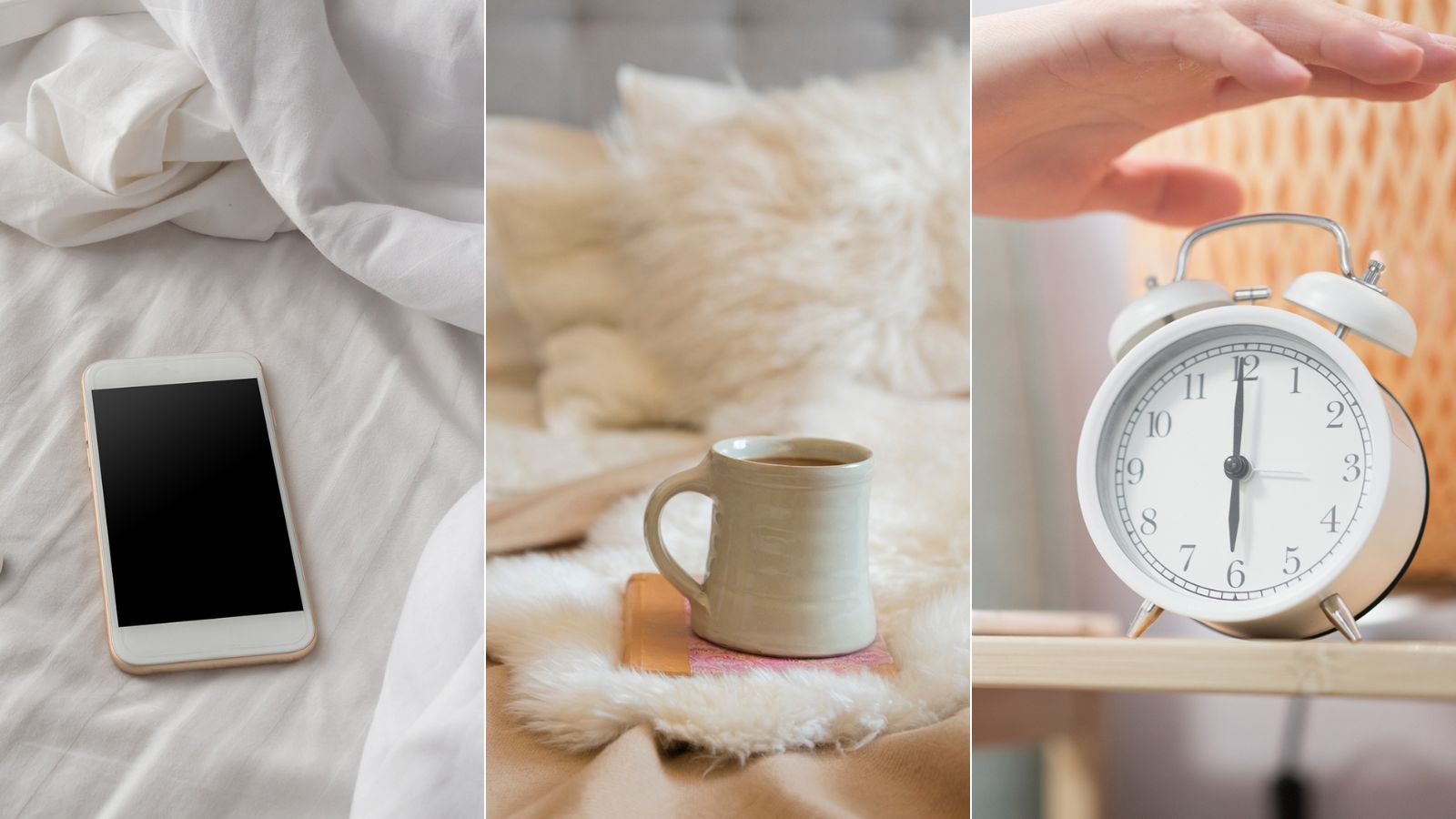

Do you struggle to sleep at night? If so, the 10-3-2-1-0 sleep rule could put an end to bad nights and groggy mornings. We all know that a good night's sleep is essential to having a good day. However, the majority of us, including me, would admit to being regularly tired. So rather than putting up with constant yawning, why not try to solve the problem at its root?
The 10-3-2-1-0 sleep rule promises to help to improve the quality of your rest which in turn will make you brighter, happier and more alert, and more productive in the day. So, I thought I'd try it, in an effort to sleep better.
Of course, establishing a new rule is futile if you've not got the right setup. I already had what felt, for me, the best mattress paired with the best pillows, but I still wasn't falling asleep fast. So I gave the 10-3-2-1-0 sleep rule a try for a week. Guess what? It worked.
The Sleep Book: How to Sleep Well Every Night, from $7.99 Amazon
This highly rated book promises to fix your sleep in five weeks, so that tossing, turning and that gnawing frustration is banished for good. Using a blend of mindfulness and new Acceptance and Commitment Therapy (ACT) techniques, Dr Guy reveals that the secret lies not in what you do, but what you learn not to do.
What is the 10-3-2-1-0 sleep rule?
The 10-3-2-1-0 sleep rule is a set of rules that create the perfect nighttime routine to ensure a great night's sleep. It ranges from cutting out caffeine ten hours before going to bed, to turning off your phone two hours before light's out.
Resident sleep specialist, Chris O’Sullivan, at the Mental Health Foundation reinforces the benefits of establishing a sleep routine.
'Our bodies release a hormone called melatonin that makes us feel naturally tired at around 10-11pm. If you go with it and head to bed as you feel tired, you’ll sleep better. Try establishing a bedtime routine that can help you recognize and promote that wave. Turning off the TV and listening to music, having a milky drink, or enjoying a warm bath are good ways to rest the mind, and open ourselves up to sleepiness.'
The 10-3-2-1-0 sleep rule in brief:
- 10 hours before bed – cut out caffeine
- 3 hours before bed – stop drinking alcohol
- 2 hours before bed – stop working
- 1 hour before bed – turn off your screens
- 0 – never snooze your alarm
So, it looks pretty straightforward, right? However, the first step to nailing the 10-3-2-1-0 sleep rule is to establish a concrete bedtime, says sleep experts.
Define your bedtime
'The simplest way to decide on what time you need to go to sleep is to work out the number of hours you need to sleep. For adults (between 18 to 64 years old) this tends to be between 7 and 9 hours a day, while older adults (65+) need between 7 and 8 hours sleep and teenagers (14 to 17 years old) need between 8 to 10 hours,' explains sleep coach Rosie Osmun.
How much sleep do you need?
However, your age only gives you a ballpark figure.
'It is also worth considering your sleep cycle when you are trying to work out when to go to sleep. When we are asleep, we go through four stages of sleep – three stages of non-REM (rapid eye movement) and one stage of REM sleep,' says Rosie.
'It takes around 90 minutes to complete the four stages and a typical night’s sleep of between seven and nine hours has approximately four or five sleep cycles. To avoid grogginess in the morning it is best to wake up when you are in a non-REM stage which is early on in the sleep cycle, so calculate the amount of sleep you need and work in 90-minute multiples. This way you can set your alarm to wake you up at an optimal time when you have not yet reached REM sleep.'
I figured out that 11pm was a good time for me to hit the hay. This is what I did.
10 hours before bed: Cut out caffeine
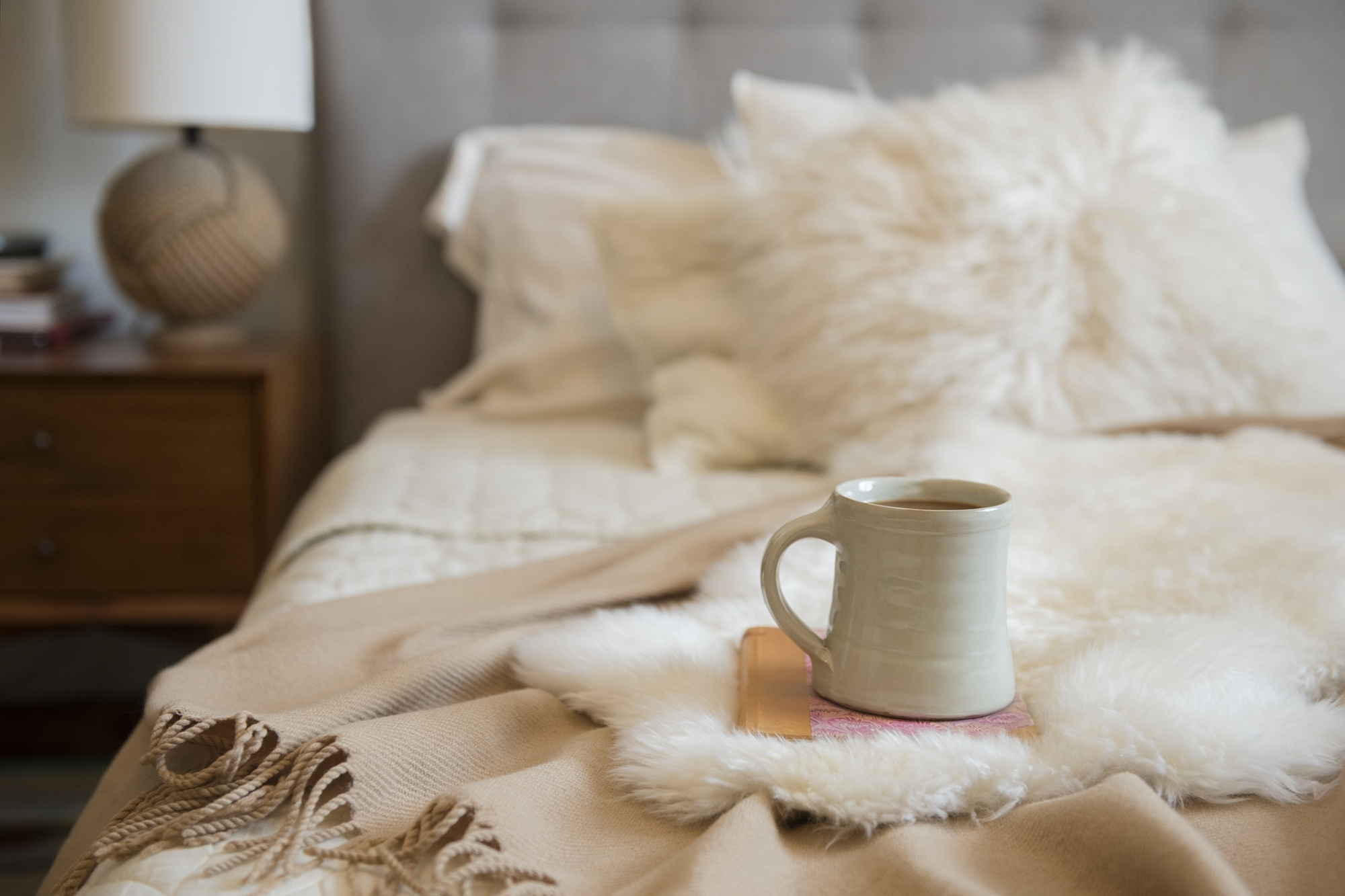
We all know that caffeine is a stimulant that keeps us awake – it's the reason coffee is most people's preferred way to start the day. However, it can also have a significant effect on your sleep.
'Caffeine is a stimulant that promotes alertness, which is perfect for first thing in the morning, but detrimental at night when you’re trying to drift off. Try to avoid drinking caffeinated drinks after 2pm, this will allow enough time for the caffeine to leave your system before bedtime. It also increases your cortisol (stress hormone) levels, so avoid caffeine if you’re feeling particularly stressed as this will encourage your levels to go up rather than reduce them,' explains Silentnight’s sleep expert, Dr. Nerina Ramlakhan.
To ensure that caffeine had no effect on my sleep, I switched to decaf 10 hours before bedtime, so around 1pm.
3 hours before bed: Stop drinking alcohol

While you might think that a nightcap will help you to drift into the land of nod, it can actually result in a restless night.
'Alcohol can interrupt your sleep cycle in the middle of the night, causing earlier wakening, more frequent bathroom trips, and inducing or worsening snoring. Try to limit the amount of alcohol you consume and avoid alcoholic drinks right before bed,' explains Emily and Jonathan Attwood, Founders of luxury bedlinen company Scooms.
The 10-3-2-1-0 sleep rule advises that you should stop drinking alcohol three hours before bed. For me, that meant 8pm. I like to have the occasional glass of wine with dinner, and I tend to eat around 7pm, so that worked for me. Saturday nights weren't quite so successful, but I was strict with myself the rest of the week.
2 hours before bed: Stop working
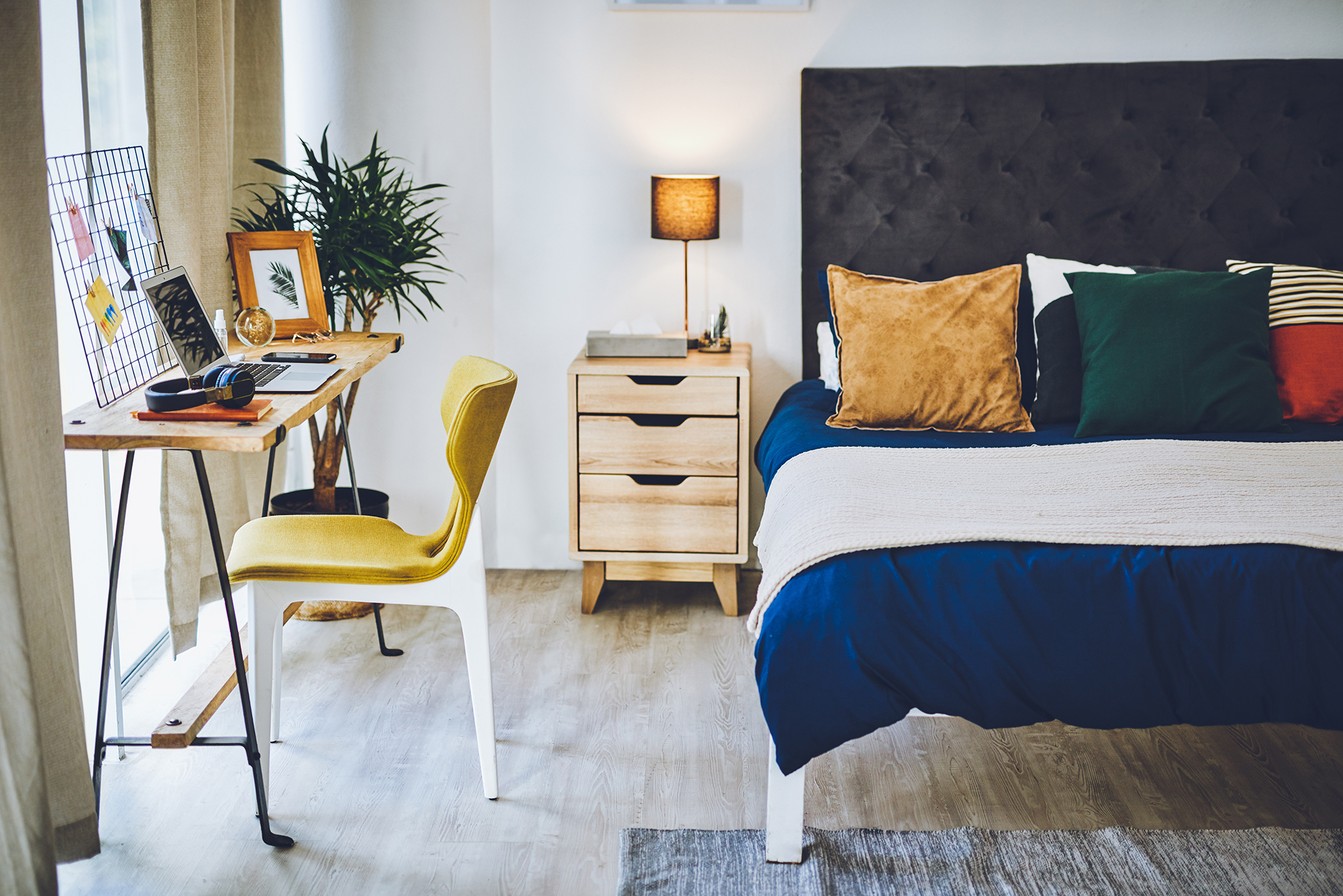
At least two hours before bed, stop working – this will give your brain time to wind down and get ready for sleep.
If your mind feels overwhelmed with tasks that need to be completed tomorrow, then try a mind dump. 'Write down all the things bothering you. Relish crossing off the things that aren’t important aren’t your responsibility or you can’t control. Acknowledge the items required of you, but don’t hold them in your mind. It’s written down and can be actioned tomorrow.
'Identify anything on your list that is a recurring issue and take ownership and action. Whether it’s job stress, relationship issues or financial concerns, create a plan to tackle these worries in small, manageable chunks,' recommends Tempur Sleep Expert and chartered psychologist, Suzy Reading.
'Work' isn't just your paid employment either – anything that makes your brain more active such as a crossword, Sudoku, or Duolingo will all make you feel more awake. Factor time earlier in your evening to complete these and let your mind relax in the run-up to bedtime.
No problem for me – work stops at 6pm latest, and then it's dinner, TV, bath, bed.
1 hour before bed: Turn off your screens
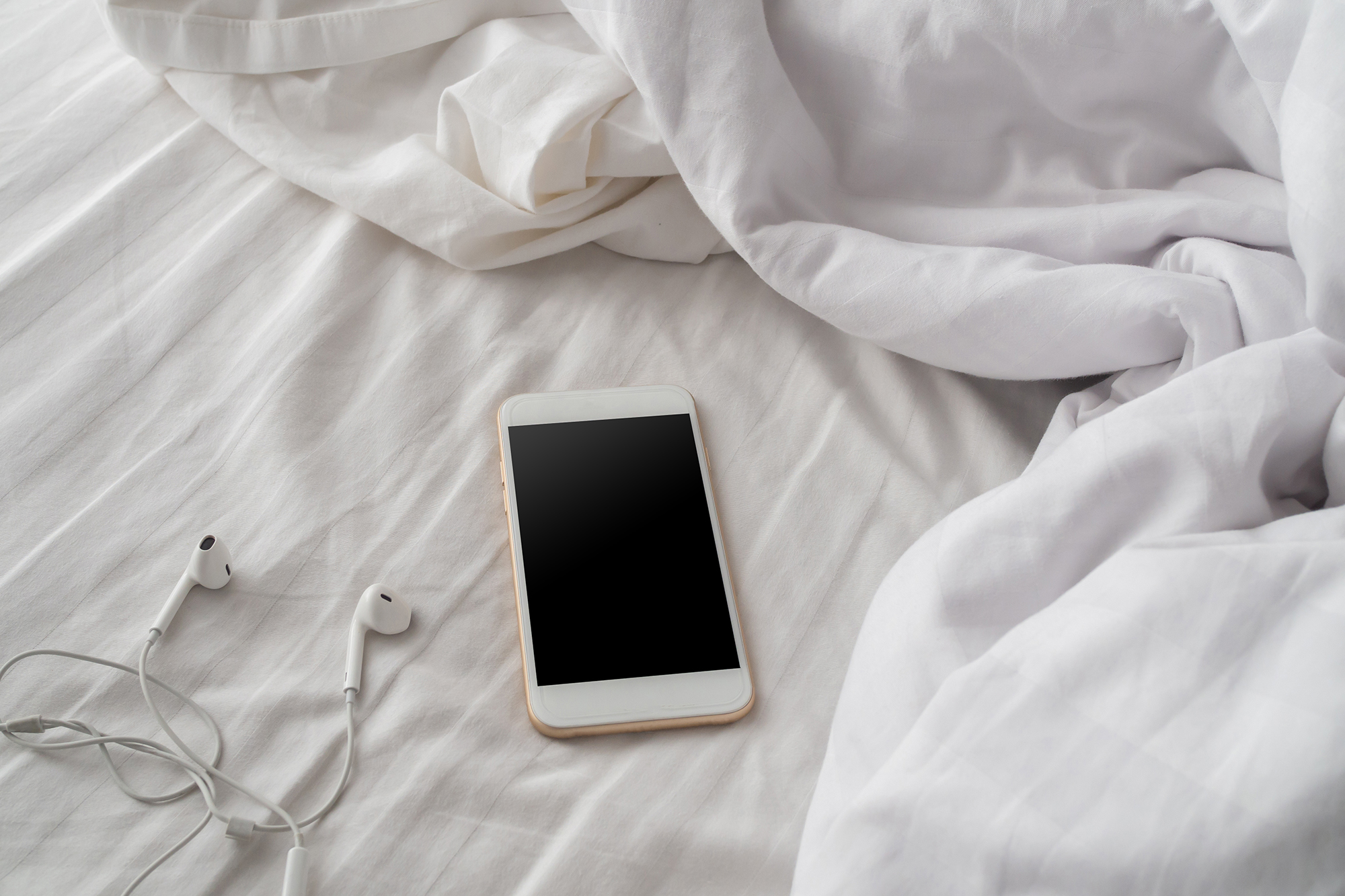
We all know that we should turn off our screens before bed, but we rarely do. However, the 10-3-2-1-0 sleep rule states that you should turn off all screens an hour before you go to bed.
'An effective habit to crack when settling down for the evening is stopping the ongoing scrolling of your mobile phone or tablet. The blue light that is emitted from the screens suppresses melatonin, a hormone that dictates your sleep pattern. Taking regular breaks from technology, especially before bedtime, can help maintain that important sleep pattern throughout the night – especially when much of the news agenda is so unsettling,' explains Silentnight’s sleep expert, Dr. Nerina Ramlakhan.
I tend to read before bed, but I do scroll on my cell phone throughout the evening. I set my cell alarm for 10pm and stopped looking at it after then.
0: The number of times you should hit the snooze button
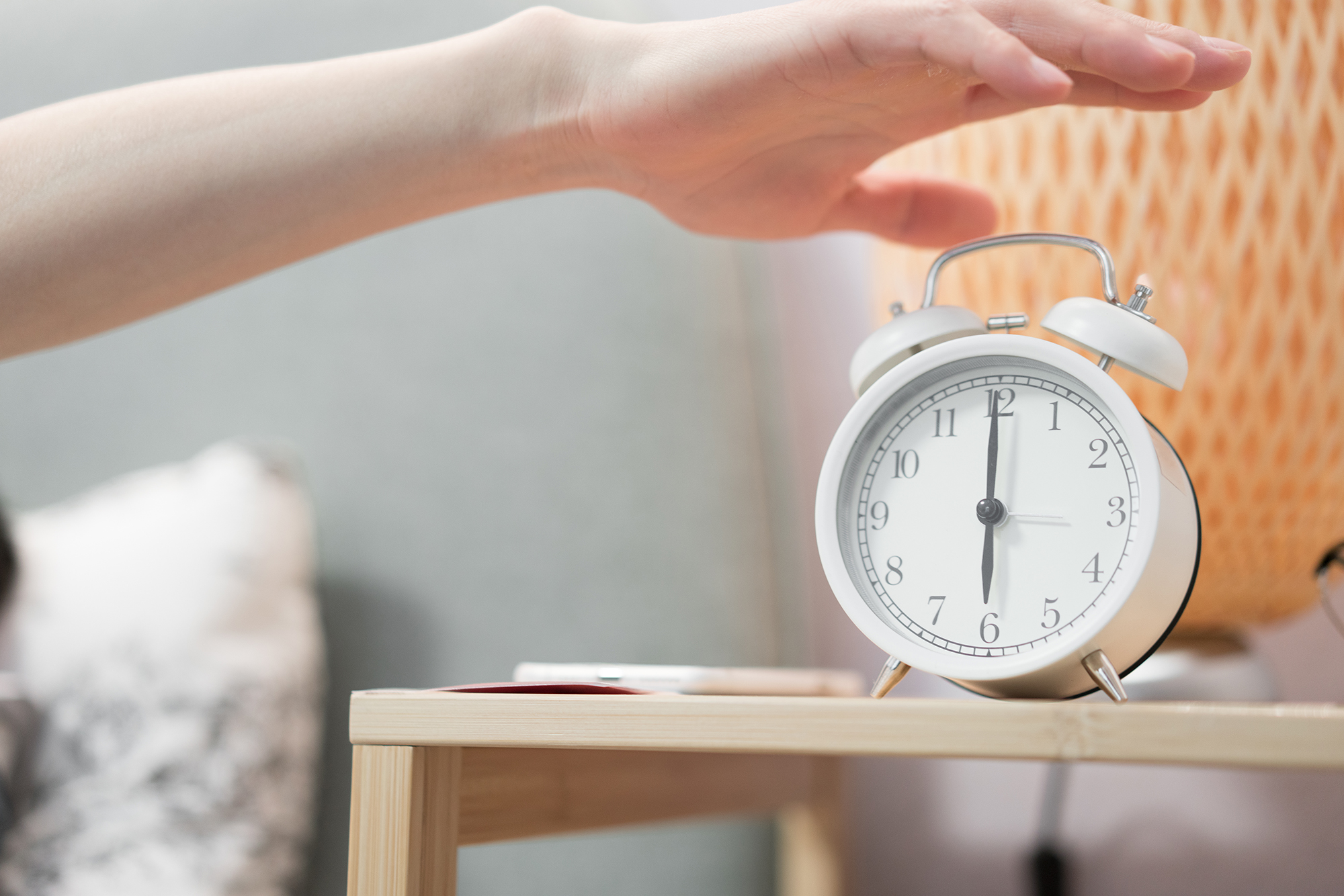
The 0 in the 10-3-2-1-0 Sleep Rule is to never hit the snooze button – it has been proven that there is no benefit to snoozing your alarm or worse factoring in the ability to snooze when setting your alarm.
'If you press the snooze button, your brain knows it’ll go off again – it’s already in the waking up process – and you won’t get any of the deep, resting slumber in between snoozes. In fact, every time the alarm goes off you get an increase in cortisol which causes you to wake abruptly and send your body into ‘fight or flight’ response.' explains experts at The Sleep Charity.
'The short period of sleep you get in between hitting the snooze button is not restorative and is disrupting your sleep pattern. It’s much better to have the extra 10-30 minutes of sleep than repeatedly pressing snooze.'
I can't say I leapt out of bed immediately, but I resisted the snooze button.
Did it help? Yes, without doubt I felt more relaxed by the time I went to bed, so falling asleep was easier. I'm pretty sure my daytime stress was reduced too, whether because I was better rested or because my evenings had been more relaxing, I'm not sure. Either way, I'd recommend this simple to follow rule.
What two things should you avoid to get a good night's sleep?
If you only do two things on this list, then you should avoid caffeine 10 hours before bed and alcohol three hours before bed. This will ensure that you have no stimulants in your system when it comes to bedtime and as such will ensure a better night's rest.
What is a good sleep time for adults?
Between 7 and 9 hours is a good sleep time for adults. However, the exact number will differ depending on your genetics and your lifestyle.
'If you are an adult and find that the recommended number of hours (around seven) is not enough because you have an active job role or busy lifestyle, you might find that you benefit more from resting a little longer each night. This being said, it is best not to sleep for too much longer than the recommended number of hours as oversleeping can make you feel groggy,' explains sleep expert Rosie Osum.
Sign up to the Homes & Gardens newsletter
Design expertise in your inbox – from inspiring decorating ideas and beautiful celebrity homes to practical gardening advice and shopping round-ups.

Having graduated with a first class degree in English Literature, Holly started her career as a features writer and sub-editor at Period Living magazine, Homes & Gardens' sister title. Working on Period Living brought with it insight into the complexities of owning and caring for period homes, from interior decorating through to choosing the right windows and the challenges of extending. This has led to a passion for traditional interiors, particularly the country-look. Writing for the Homes & Gardens website as a content editor, alongside regular features for Period Living and Country Homes & Interiors magazines, has enabled her to broaden her writing to incorporate her interests in gardening, wildlife and nature.
-
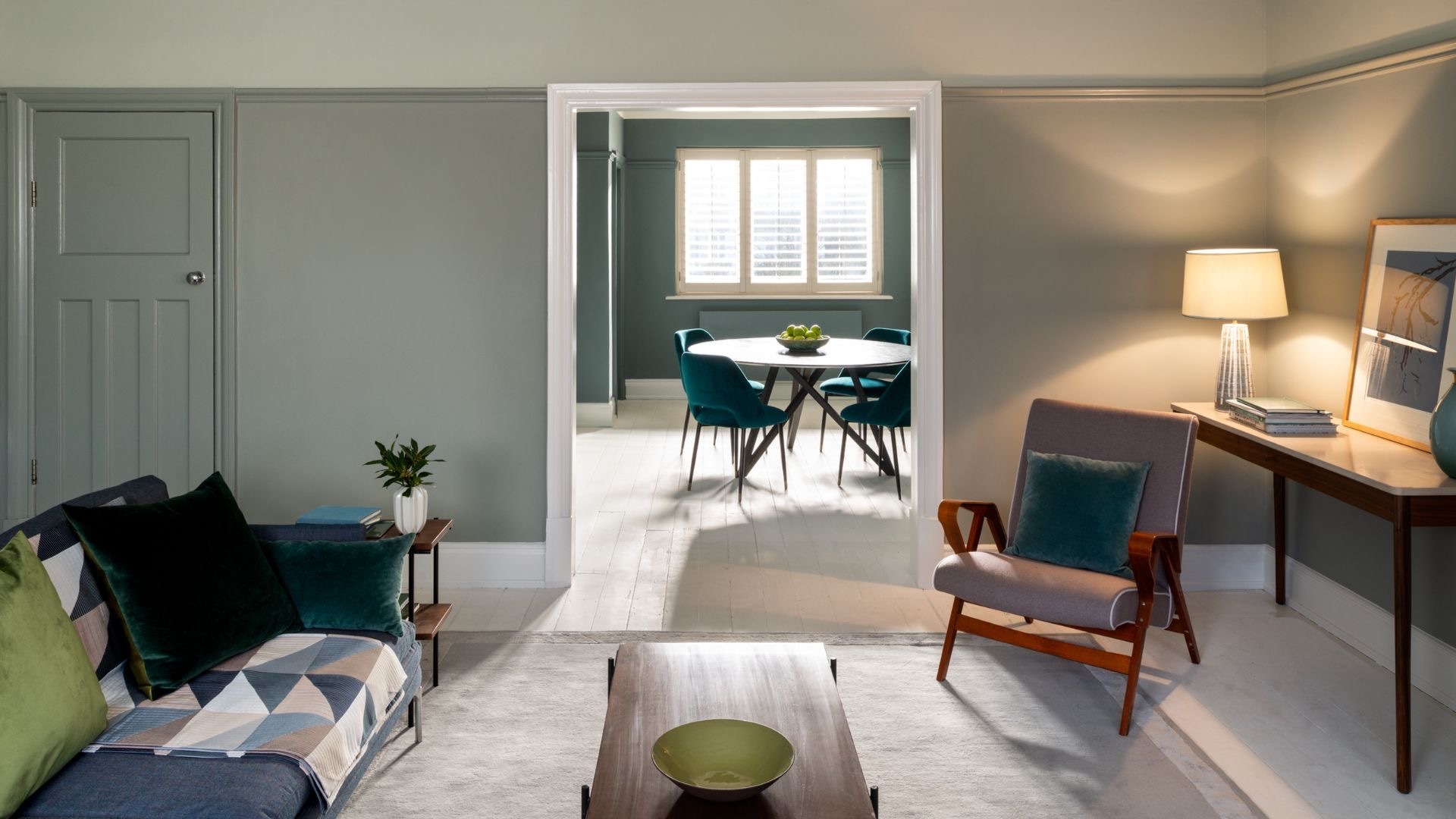 5 times you should never paint a room gray – no matter how timeless you think this shade is
5 times you should never paint a room gray – no matter how timeless you think this shade isIt might be dubbed a classic neutral, but gray isn't the right choice for every room
By Sophia Pouget de St Victor
-
 These 7 plants will excel and be pest-free next to rosemary – discover the best companion plants, plus what to keep away
These 7 plants will excel and be pest-free next to rosemary – discover the best companion plants, plus what to keep awayRosemary companion planting keeps plants thriving, deters pests, and can even improve the taste of some crops
By Drew Swainston
